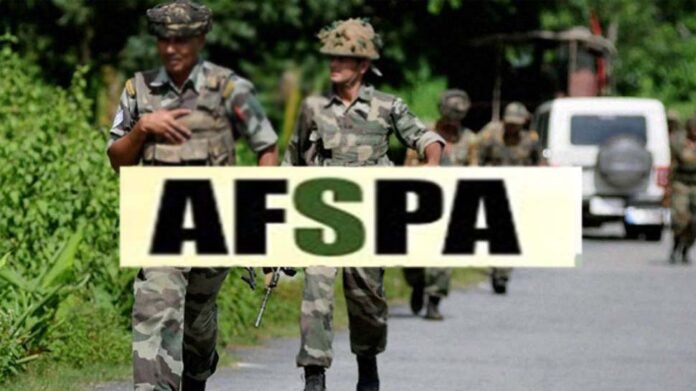The contentious Armed Forces Special Powers Act (AFSPA) continues to be a subject of debate and concern as the central government announces its extension in three districts and three police stations of Arunachal Pradesh for a further six months. This decision, while aimed at addressing security challenges, raises questions about the balance between security imperatives and the protection of civil liberties in the northeastern state.
Arunachal Pradesh, nestled in the eastern reaches of India, shares its borders with China, Bhutan, and Myanmar, making it strategically significant from a security standpoint. Over the years, the region has witnessed sporadic incidents of insurgency and militancy, prompting the deployment of security forces and the enactment of special legal provisions such as AFSPA.
The extension of AFSPA in three districts—Tirap, Changlang, and Longding—and three police stations underscores the persistent security challenges facing certain pockets of Arunachal Pradesh. These areas have been identified as being vulnerable to insurgent activities, cross-border infiltration, and other threats to public order and national security.
AFSPA, a legislation enacted in 1958, grants special powers to the armed forces operating in “disturbed areas,” including the authority to arrest without a warrant and to use force, even leading to the death of individuals, if deemed necessary for the maintenance of public order. While proponents argue that AFSPA is essential for dealing with insurgencies and protecting civilians from armed groups, critics view it as a draconian law that enables human rights abuses and undermines democratic principles.
The extension of AFSPA in Arunachal Pradesh has reignited the debate surrounding the efficacy and legitimacy of such legal measures in addressing security challenges. While security agencies emphasize the need for uninterrupted powers to combat insurgency and maintain stability, civil society organizations and human rights activists raise concerns about the potential for abuse of power and violations of fundamental rights.
One of the central arguments against AFSPA is its alleged role in enabling impunity and shielding security personnel from accountability for excesses committed in the course of their duties. Reports of extrajudicial killings, arbitrary detention, and other human rights violations have fueled calls for the repeal or reform of AFSPA, particularly in states like Arunachal Pradesh where insurgency-related violence has declined in recent years.
However, supporters of AFSPA contend that the law is a necessary tool in the hands of security forces to tackle unconventional threats posed by insurgent groups operating in remote and inaccessible terrain. They argue that the withdrawal of AFSPA could embolden militant outfits and compromise the safety and security of both civilians and security personnel.
The extension of AFSPA in Arunachal Pradesh also raises questions about the broader approach to conflict resolution and peacebuilding in the region. While security measures are undoubtedly important in addressing immediate threats, there is a growing recognition of the need for a holistic strategy that addresses the root causes of insurgency, including socio-economic marginalization, governance deficits, and issues of identity and belonging.
Efforts to address these underlying grievances require a multi-stakeholder approach involving the central and state governments, civil society organizations, and local communities. Initiatives aimed at inclusive development, dialogue with stakeholders, and confidence-building measures can complement security operations and contribute to long-term peace and stability in the region.
In addition, the extension of AFSPA in three districts and three police stations of Arunachal Pradesh reflects the complex security challenges facing certain areas of the state. While the decision is driven by legitimate concerns for public safety and national security, it also underscores the need for a nuanced approach that balances security imperatives with respect for human rights and the rule of law. As Arunachal Pradesh continues its journey towards peace and development, it is imperative that all stakeholders engage in constructive dialogue and collaborative efforts aimed at addressing the root causes of conflict and building a more secure and inclusive future for all its residents.


